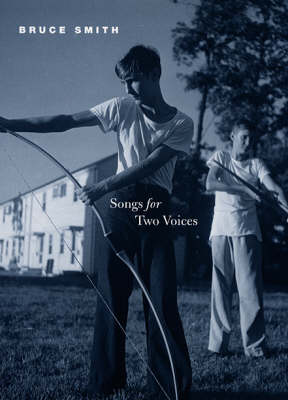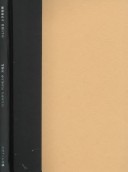Phoenix Poets Series PP (CHUP)
3 total works
'Devotion: Guitar': From Tuscaloosa west to Mississippi then north to Memphis through country as unmusical as I was unloved by the decorous ardor of the South and the voice of one whose griefs were Cherokee, absentee, left in the Chevy and secret. She didn't love my love like Shiva's everywhere and blue and many-handed, some with knives and some with billet-doux. She wouldn't sacrifice the better judgment I'd want of her. Like stopped clocks (black hands, white faces) the geographic cure was true two times a day. All time else I was wrong and blued like the notes of the guitar, drum, saxophoned songs I was receiving: a magnet wound around a steel coil - a Les Paul - the quavers I converted to an electric boil that simmered into the sweet, fry-oil air. I can be mortified anywhere, everywhere. In the hands of Bruce Smith, devotions are momentary stops to listen to the motor of history. They are meditations and provocations. They are messages received from the chatter of the street and from transmissions as distant as Memphis and al-Mansur. Bulletins and interruptions come from brutal elsewheres and from the interior where music puts electrodes on the body to take an EKG.
These poems visit high schools, laundromats, motels, films, and dreams in order to measure the American hunger and thirst. They are interested in the things we profess to hold most dear as well as what's unspoken and unbidden. While we're driving, while riding a bus, while receiving a call, while passing through an X-ray machine, the personal intersects - sometimes violently, sometimes tenderly - with the hum and buzz of the culture. The culture, whether New York or Tuscaloosa, Seattle or Philadelphia, past or present, carries the burden of race and 'someone's idea of beauty.' The poems fluctuate between the two poles of 'lullaby and homicide' before taking a vow to remain on earth, to look right and left, to wait and to witness.
These poems visit high schools, laundromats, motels, films, and dreams in order to measure the American hunger and thirst. They are interested in the things we profess to hold most dear as well as what's unspoken and unbidden. While we're driving, while riding a bus, while receiving a call, while passing through an X-ray machine, the personal intersects - sometimes violently, sometimes tenderly - with the hum and buzz of the culture. The culture, whether New York or Tuscaloosa, Seattle or Philadelphia, past or present, carries the burden of race and 'someone's idea of beauty.' The poems fluctuate between the two poles of 'lullaby and homicide' before taking a vow to remain on earth, to look right and left, to wait and to witness.
Part ancient Greek chorus, part Southern Baptist revival, Songs for Two Voices is an explosive showcase for Bruce Smith's jazz-like variations on sonnets and couplets, offering twenty-five duets: poems of call and response, song and countersong. In poems that groove and break, shimmy and dance, Smith filters his Milcs Davis-like riffs through a post-World War II American sensibility to deliver verse without platitudes. As Smith's speakers wander through the detritus of American materialism - encountering jazz, football, drag, class war, Reaganomics, and Vietnam - the poems dramatize the contradictions and peculiarities of growing up male in Cold War America, both sensing promise and suffering disillusion. Each poem here speaks in two voices: one that attacks and one that cowers, one voice that leads while the other follows. But Smith's subjects are unencumbered by form, and their voices blossom in duet: the idealized lover is also a betrayer, the man is also a girl. These binaries of statement and contradiction give birth to a third voice in the unrcalized possibilities of the two.
A mesmerizing follow-up to 2000's The Other Lover, Smith's Songs for Two Voices is carnal yet fiercely intellectual, laid out with the self-confidence of a poet who can invoke Mozart and Coltrane, Anna Akhmatova and John Wayne, Teddy Roosevelt and Augustine in the same incendiary breath.
A mesmerizing follow-up to 2000's The Other Lover, Smith's Songs for Two Voices is carnal yet fiercely intellectual, laid out with the self-confidence of a poet who can invoke Mozart and Coltrane, Anna Akhmatova and John Wayne, Teddy Roosevelt and Augustine in the same incendiary breath.
"The Other Lover" is a collection of bittersweet American love poems. Writing with jazz-like verbal panache, Bruce Smith reaches for the paradoxical pulls between sweetness and bitterness. With carefully crafted rhyming stanzas and unpredictable free verse rhythms, these poems bristle and pop like riffs of a virtuoso hornplayer. The book is a personal, passionate, disturbing collection that places the reader both inside and outside the poet's life. Deftly filtering personal experiences through improvisatory structures and a wide range of idioms, Smith communicates the want, the lack, the desire for what is missing, the sweetness of absence and pain. The pleasure of "The Other Lover" is in the imagination's dance in the erotic spaces between the poet and the reader.


